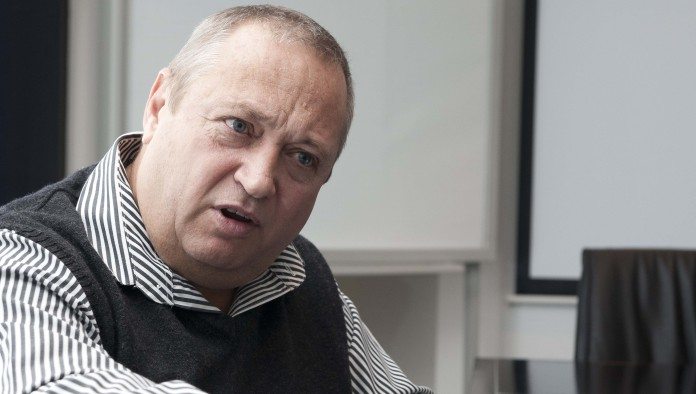
SOUTH Africa’s mining industry must acknowledge past deeds of inhumanity and immorality before it could shape a future in which it overcame the hostile relationship between it, labour, and the government.
Speaking at the opening of the Jo’burg Indaba, a two-day conference, Neal Froneman, CEO of Sibanye Gold and vice-president of the Chamber of Mines, delivered an unflinching assessment of the mining industry’s relationship with its stakeholders.
He said it was mired in unacknowledged legacies, and that labour strife and certain legislation imposed by the government were seen as “levers” aimed at getting a fundamentally trenchant mining industry to transform.
But he also called on unions to place their members interests before their political ambitions, and for the government to be fair and efficient in its administrative functions, and provide clear legislation.
Froneman based his comments on a document called the Zambezi Protocol, produced following a meeting in April convened by the Brenthurst Foundation, which recognised Africa’s mining sector was in crisis.
Instead of repeating complaints about the intransigence of unions and workers, and the missteps of governments, however, Froneman called on business to take a proactive step to change the conversation regarding mining.
Froneman’s comments come as the mining industry waits on the South African government to publish a negotiated version of the third mining charter, and as amendments to the centrepiece legislation, Minerals & Petroleum Resources Development Act, wait to be promulgated by Parliament.
It’s also recognised that South Africa faces the risk of a credit downgrade by ratings agencies, a development that would severely hurt the country’s ability to grow the economy and provide employment.
Froneman started with the mining industry’s legacy in South Africa which had produced economic benefits, and had been the cornerstone of Johannesburg, but which had also led to suffering.
“If we look back, can we honestly say that our industry did the best it could for all stakeholders and that it acted humanely and morally? I for one must acknowledge that it did not,” said Froneman.
Acknowledging past misdeeds was the first of three steps aimed at realising some the resolutions set down in the Zambezi Protocol. The other two steps involved agreeing a future vision in which business had to integrate “… much better into development policies at local, national and regional levels”, and establish a social and economic compact.
“Business will be required to commit to open and transparent disclosure of information as the basis for meaningful engagement with all stakeholders,” said Froneman.
“More importantly business will have to ensure that value flows equitably to all stakeholders according to an agreed and specific framework, including employee benefits, profit sharing, taxes, social expenditure and dividends to shareholders.”
As for unions, he said: “We understand the important historical role of unions in promoting a political agenda, but the unions of the future should see their role as serving their members’ interests first”.
He also called on government to increase incentives for investment in mining growth projects as well as a fair taxation regime that would promote investment.
“Government can further promote growth by contributing towards partnerships with the private sector in new technology and market development. Fair and efficient administrative processes will be in place, and adhered to, as enshrined in legislation without impeding business operations,” he added.
“This ambitious vision can be realised through a renewed collective will and re-booted relationships that are not contaminated with historical perceptions and legacies,” he said.











